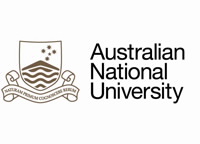 |
A Memorandum of Understanding (MOU) between the Australian National University (ANU) and the Australian Nuclear Science and Technology Organisation (ANSTO) has been signed, enabling the two institutions to collaborate across research fields which underpin Australia’s capacity for international engagement in nuclear science and technology including key accelerator facilities, future energy sources and nuclear non-proliferation.
Launched at the ANU by the Minister for Innovation, Industry, Science and Research, Senator Kim Carr, the signing reflects the Government’s Innovation Priorities, which aim to increase Australia’s capacity to create knowledge and to advance skills and technologies.
Speaking at the signing, ANU Vice-Chancellor, Professor Ian Chubb, said the University and ANSTO were custodians of infrastructure and facilities that, when shared, could potentially bring greater benefit to the nation.
“This MOU will enhance research and innovation at the ANU and ANSTO, and allow us to explore new areas of mutual interest,” he said.
“In particular, we will develop a national strategy to coordinate use and development of a heavy-ion accelerator and ion source technology, and undertake collaborative activities that enhance educational programs in nuclear physics, nuclear engineering and materials science.
“The potential of this partnership demonstrates the value of Commonwealth institutions working together for the betterment of all Australians. In addition to accelerating research into these important areas, it will give students greater opportunity to access facilities that will enhance their scientific expertise,” said Professor Chubb.
ANSTO Chief Executive, Dr Adi Paterson, said the MOU represented a renewal of nuclear research and collaboration in Australia.
“Nuclear research and innovation are clearly moving into a new and more strategic national context. This MOU, between two national institutions, will help to develop the kind of expertise and knowledge needed to advance application of nuclear technology for Australia,” said Dr Paterson.
“It is important that we engage the next generation in research leadership and innovation. To develop the kinds of skills we need to bring the full benefit of nuclear technology in Australia will need commitment, vision and sustained investment.
Foundational research and enhanced innovation into areas such as nuclear fusion and environmental challenges using nuclear techniques will underpin our collaboration and its impact,” added Dr Paterson.


